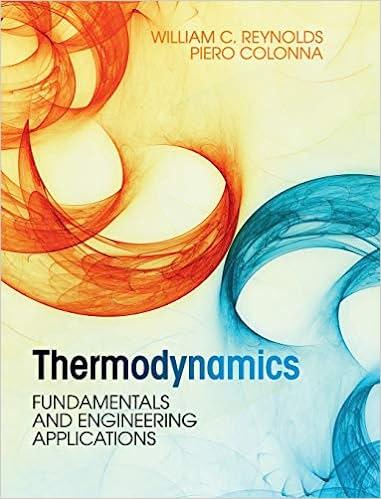Question
Partitioning of organic contaminants (i) from a NAPL mixture into water is modeled using Raoults Law, where the equilibrium (maximum) concentration (C W i )
Partitioning of organic contaminants (i) from a NAPL mixture into water is modeled using Raoults Law, where the equilibrium (maximum) concentration (CWi) of each contaminant i is proportional to the single-component equilibrium solubility (SWi ) for each component and the NAPL-phase mole fraction (XNi) for each component i, as follows:
CWi = SWi XNi
Next, consider a spill of gasoline into the vadose zone. You wish to estimate the equilibrium concentrations in the vadose zone water percolating toward the groundwater table.
This gasoline contains BTEX, or Benzene, Toluene, Ethylbenzene (EB), and Xylenes (o-, m-, p- Xylene average). The molecular weights for these four chemicals are 78 g/mol, 92 g/mol, 106 g/mol, and 106 g/mol; the equilibrium aqueous solubilities are 1780 mg/L, 515 mg/L, 152 mg/L, and 168 mg/L (average). The compounds comprise (by weight) 2%, 8%, 5%, and 15% of the fuel. The waste gasoline has a measured average molecular weight of 90 g/mol and density of 0.75 g/cm3.
Calculate the maximum solubility in vadose-zone water for each of these BTEX contaminants for a NAPL-phase spill of the fuel from a leaking underground tank (mg/L).
First, you have to calculate the NAPL phase mole fraction for each BTEX component. Note: the NAPL phase concentrations have been measured in mass fractions, so you must first convert mole fractions to mole fractions.
Below, write the NAPL -phase mole fractions in order of Benzene, Toluene, Ethybenzene, and Xylenes. Carry your answer out to 3 places after the decimal.
Step by Step Solution
There are 3 Steps involved in it
Step: 1

Get Instant Access to Expert-Tailored Solutions
See step-by-step solutions with expert insights and AI powered tools for academic success
Step: 2

Step: 3

Ace Your Homework with AI
Get the answers you need in no time with our AI-driven, step-by-step assistance
Get Started


